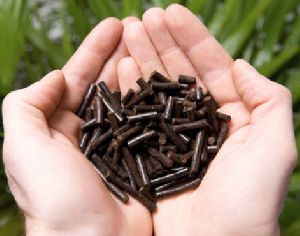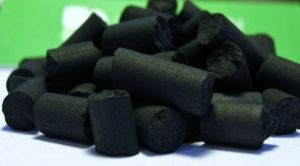
Torrefied Pellets
Torrefied biomass pallets are regarded as one of the most efficient biofuel manufacturing processes to produce the coal substitute known as torrified pellets. In the torrefaction process, biomass is processed at the temperature of 250-350°C in the absence of oxygen atmosphere, decomposing the Biomass components, preserving energy content so that the energy density of the torrefied biomass becomes in pellet or briquette form which is much higher than other solid biomasses in trade. The properties of the final product depend on the torrefication process and on the kind of feedstock are used. Depending on factors such as time, temperature and residence time, the biomass can be torrefied to different torrefaction degrees/temperatures. Directly connected to the degree of torrefaction is the net calorific value (NCV) of the resulting product. Theoretically, NCVs of 28 + MJ/kg could be reached, even though the overall process efficiency seems to be best at 20-22 MJ/kg NCV (depending on feedstock).
...more
biopellets
As energy plays an important role in the economic growth of emerging countries, Bio – energy is the most versatile form of energy to produce a low carbon and renewable energies such as Bio Gas, Bio Char etc. As the global demand for energy continues to be on the increasing trend, energy security, higher dependence on conventional fossil fuels, global issues such as climate change & global warming concerns become ever more important. Among various type of bio energy, Biomass-pellets (made of Sugarcane, Peddy Straw and Cotton) is a densified and refined form of biomass, which provides a promising solution for rapid and easy replacement to conventional fossil fuels. There are different applications for which pellets can be used; from commercial to industrial purpose. It can be partly used as coal or fossil fuel in co-firing heating the large-scale industrial operation to reduce the energy cost or in the power plants to solve the problem of insufficient power supply.
...more
Biochar
Biochar is a valuable soil amendment; It is a type of bio energy which is produced by the incomplete burning of Biomass. The process creates a fine-grained, highly porous charcoal that helps soils retain nutrients and water. Biochar can be an important tool to increase food security and cropland diversity in areas with severely depleted soils, scarce organic resources, and inadequate water and chemical fertilizer supplies. Biochar also improves water quality and quantity by increasing soil retention of nutrients and agrochemicals for plant and crop utilization. More nutrients stay in the soil instead of leaching into groundwater and causing pollution.
...more
Biomass and Biofuels

Biochar

Torrefied Pellets

Biomass Solution

biomass stove

Biomass supply services
Be first to Rate
Rate ThisOpening Hours